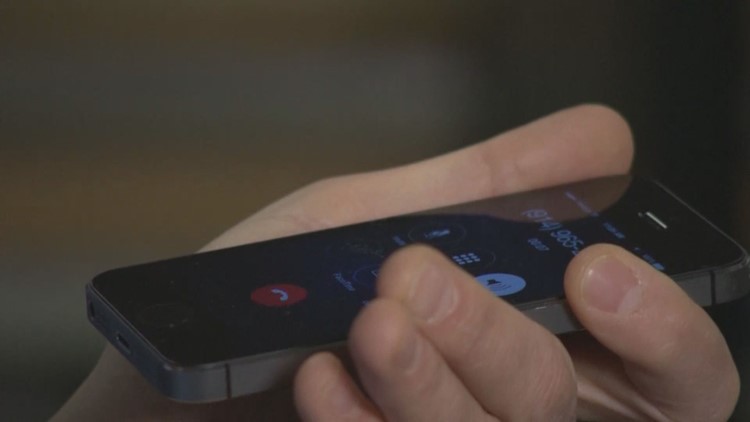JACKSONVILLE, Fla. — It’s a call that could cost you: Scammers using the real phone number of a financial institution to contact customers and steal money, a process called “spoofing.”
“It’s just a huge inconvenience," Joshua Cascanet, a Vystar Credit Union customer, said.
Cascanet took a call from who he believed was a Vystar Credit Union representative warning him about fraud on his account. However, it was not a legitimate call from his credit union. Cascanet had been "spoofed" -- a scheme when someone hijacks a familiar phone number and uses it maliciously.
“I didn’t think twice that she had all this information and didn’t verify anything, except a security code that I would verify when I call in anyway,” Cascanet said.
The code Cascanet gave the fraudster – one that any bank would text when prompted to login – in turn gave access to his account. A few minutes after the call ended, he got another fraud alert.
“I log on and sure enough $1,500 came out,” Cascanet said.
When he called the Vystar Credit Union back, he said the representative told him there was no record of a previous call.
The ON Your Side team contacted Vystar Credit Union. It couldn't comment on a member account, but disclosed there is a fraud investigation team dedicated to situations like Cascanet's.
“It’s nationwide, it’s happening everywhere,” Bobby Fultz, who manages Vystar Credit Union's fraud investigation team, said.
In order to prevent these situations, Fultz suggested to turn the fraud alerts on and check your account regularly.
Cascanet said got his money back after a week-long fraud investigation. He even posted a warning on his Facebook page, which prevented a friend for falling for the scheme.
“She got the same call and she hung up on them,” Cascanet said.
Fultz explained if you are suspicious or want to make sure you are speaking with your financial institution, just hang-up.
“Call back to the number listed on their business or financial institution...that’s calling them and verify [by asking] 'are you calling me?' Fultz said.
The Federal Communications Commission explained it is also aware of these calls and is working on rules to, “clamp down on attacks.”



